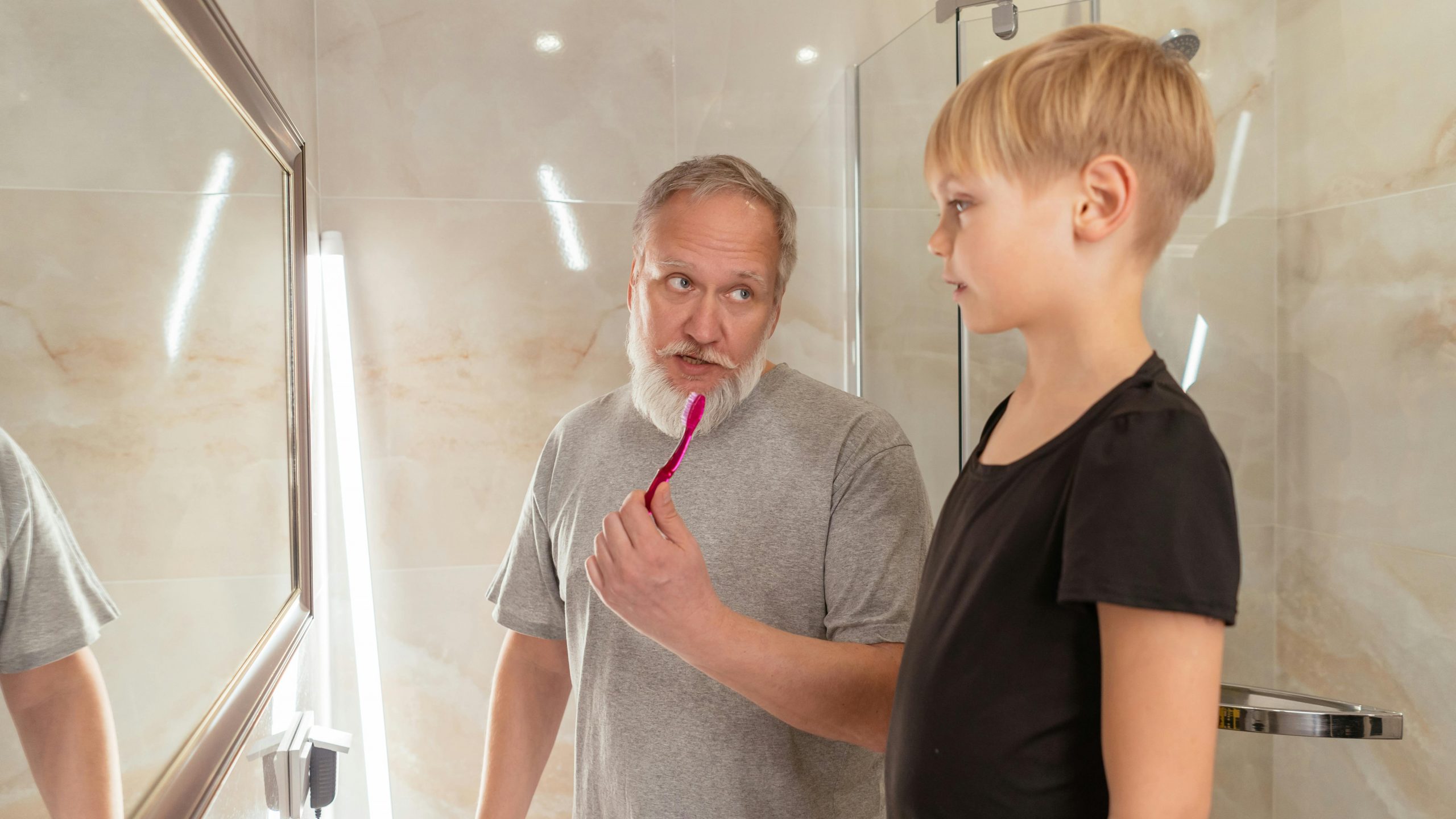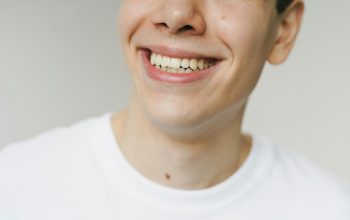

If you’ve ever looked in the mirror and noticed your teeth aren’t sparkling white, you’re not alone. Many people wonder, “Are teeth naturally yellow?” The truth is, yes—teeth can be naturally yellow, and that’s not always a bad thing.
Tooth color varies from person to person. Genetics, age, and lifestyle all play a role. While very white teeth may seem ideal, slightly yellow or off-white teeth can still be perfectly healthy.
This article will explore what makes teeth yellow, when it’s normal, and how to get rid of yellow teeth if you want a brighter smile.
Why Teeth Might Look Yellow
 Teeth are made of multiple layers. The outer layer is enamel, which is white and hard. Underneath is dentin, a softer tissue that has a yellowish tint. If enamel wears down, the yellow dentin underneath starts to show.
Teeth are made of multiple layers. The outer layer is enamel, which is white and hard. Underneath is dentin, a softer tissue that has a yellowish tint. If enamel wears down, the yellow dentin underneath starts to show.
Some yellowing is natural and doesn’t mean your teeth are unhealthy. In fact, trying to make your teeth too white with harsh products can actually damage them.
What Causes Yellow Teeth?
Here are the most common causes of yellow teeth:
- Genetics
Some people are born with thinner enamel or naturally darker dentin. If your family has yellowish teeth, yours might too—no matter how well you brush.
- Aging
As you get older, enamel naturally gets thinner from years of brushing and eating. This makes the yellow dentin more visible.
- Food and Drinks
Dark-colored foods and drinks can stain teeth over time. Some common culprits include:
- Coffee and tea
- Red wine
- Berries
- Tomato sauce
- Soda
These leave behind pigments that stick to your enamel, especially if you don’t rinse or brush afterward.
- Smoking and Tobacco Use
Nicotine and tar stain teeth quickly. Over time, this can turn your teeth yellow or even brown.
- Poor Dental Hygiene
Not brushing and flossing regularly allows plaque and stains to build up. This can make your teeth look dull and yellow.
- Medications
Certain antibiotics (like tetracycline) or medications for high blood pressure and allergies can discolor teeth as a side effect.
- Fluorosis
Too much fluoride during early childhood can cause white or brown spots on the teeth. In some cases, it makes teeth appear yellowish.
Are Yellow Teeth Unhealthy?
Not always. If your teeth are yellow but strong, cavity-free, and your gums are healthy, there’s likely no major problem.
Here’s how to tell if yellow teeth are a concern:
- Healthy yellow: Even color, no pain or sensitivity, no decay
- Unhealthy yellow: Uneven color, brown or black spots, pain or sensitivity
If you’re unsure, a visit to the dentist can help determine if your tooth color is normal or a sign of something more serious.
Are White Teeth Healthier?
Not necessarily. Many people associate white teeth with good health, but that’s not always true. Some people with naturally white teeth may still have cavities or gum problems. Others with yellowish teeth may have excellent oral health.
Teeth whitening only changes the appearance of your teeth—not their strength or health.
Tips to Keep Teeth White

Once you’ve brightened your teeth, keeping them white takes some daily effort. Here’s how to make your results last:
- Limit dark-colored drinks like coffee and soda
- Use a straw to reduce contact with your teeth
- Brush after meals when possible
- Quit smoking or using tobacco
- Get regular cleanings at the dentist (every 6 months)
When to See a Dentist
If your teeth are turning yellow quickly or you notice stains that won’t go away, see your dentist. You may have:
- Plaque or tartar buildup
- Enamel erosion
- Tooth decay or cavities
A dental cleaning or deeper evaluation may be needed to solve the issue.
Natural Remedies: Do They Work?
Some people use natural options to try and whiten their teeth. Here’s a quick look at what works—and what doesn’t.
Baking Soda
Mildly abrasive, baking soda can remove surface stains. Mix a small amount with water and brush gently once or twice a week.
Hydrogen Peroxide
This is found in many whitening products. Be careful with pure hydrogen peroxide—it can irritate gums if used too often.
Apple Cider Vinegar
Some people use it for whitening, but it’s acidic and can erode enamel if used too often. It’s not recommended for regular use.
Activated Charcoal
This gritty black powder is popular on social media, but it may wear down enamel over time. Use with caution and don’t overdo it.
Note: Always ask your dentist before trying home remedies, especially if you have sensitive teeth.
Embracing Your Natural Smile
Everyone’s teeth are different, and being a little yellow doesn’t mean you’re unhealthy. If you’re practicing good oral hygiene and seeing your dentist regularly, there’s no need to worry about a slightly yellow tint.
Still, if whitening your teeth helps you feel more confident, there’s nothing wrong with seeking a brighter smile—as long as you do it safely.
Final Thoughts
So, are teeth naturally yellow? Yes—for many people, yellowish teeth are completely normal. Genetics, aging, and even healthy habits can all affect the color of your teeth. The important thing is to focus on dental health first. A healthy mouth matters more than a perfectly white smile.
If you want whiter teeth, learning how to get rid of yellow teeth through daily care and safe treatments is a smart start. Just be sure to protect your enamel and talk to your dentist before trying anything new.
